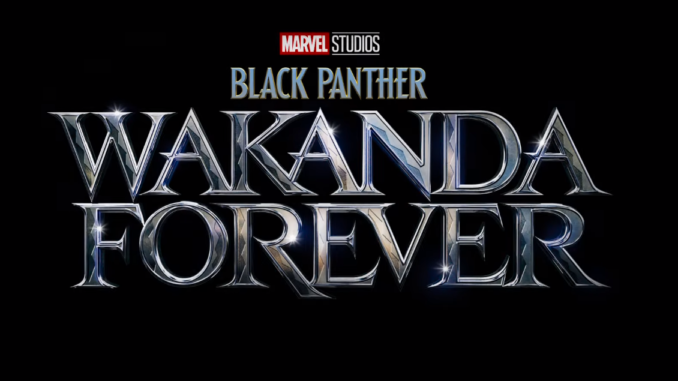
“Black Panther: Wakanda Forever,” the hotly anticipated sequel to 2018’s “Black Panther” and the latest entry in the Marvel Cinematic Universe, was released to theaters Nov. 2022. Ryan Coogler returns as director and writer, bringing to life a film many thought impossible because of the tragic loss of lead Black Panther actor Chadwick Boseman during 2020.
“Black Panther: Wakanda Forever” follows the royal family of the nation of Wakanda as they deal with the untimely loss of King T’Challa, a loss that lays the nation bare to foreign assault and pits it against forces that seek to take advantage of its people’s grief. As Princess Shuri deals with the death of her brother and Queen Ramonda her son, a new enemy emerges from the sea: Namor, king of a race of merpeople seeking to protect their supply of vibranium, a mythical element thought only to exist in Wakanda. When Namor and his people plot to attack the African nation, a new hero must emerge to take on the name Black Panther.
From the outset, it must be understood how unenviable a position Coogler and his fellow filmmakers must have been in, having to craft a narrative around the loss of Boseman that both respectfully carries on his legacy and tells a cohesive, largely self-contained story. In both respects, the film mostly succeeds.
The best moments of “Black Panther: Wakanda Forever” are of remembrance. The loss of the character T’Challa, while an obvious analogue to the loss of Boseman, shapes the narrative and informs the emotions of the film’s other characters. While the choice was necessitated by Boseman’s passing, it is integrated so naturally by the filmmakers that the grief experienced by the characters feels real and, indeed, is no doubt real on a metatextual level.
This theme of grief works as homage for Boseman and as a vehicle for one of the film’s most interesting subplots: the struggle in Shuri’s mind between her dependence on scientific reasoning and the faith of her people. In being unable to save her brother, Shuri feels her scientific mind has failed her, and yet she has never made a place for faith in her life. A dilemma arises then in which Shuri can neither rely on science nor turn to faith. Realizing this, she must carve her own path in reconciling with the past and dealing with the future.
Letitia Wright brings this dynamic to life for Shuri. She, like her co-stars Lupita Nyong’o and Angela Bassett as Nakia and Ramonda, respectively, manages a balance between grief and resolve that is endlessly impressive.
Unfortunately, where “Black Panther: Wakanda Forever” succeeds in paying homage to the man who lovingly portrayed its namesake for years, the film does not bode as well in some of the aspects of its central narrative.
Namor is a serviceable villain — one whose motives are understandable if not extreme and misguided — but his character varies in resolve throughout the film and ends up being a clumsy antagonist. His backstory is explained well and given ample screen time, but is not strong enough to evoke sympathy for the character or justify the twenty minutes or so Coogler dedicates to it.
“Black Panther: Wakanda Forever” is a long film. Clocking in at nearly three hours, the film occasionally remembers it is part of the Marvel Cinematic Universe and includes a few unnecessary subplots that clearly exist to set up future projects. These subplots drag down the pacing rather than enhance the tension. A trimmer cut of this film would make for a tighter overall experience, but the property-saturated business model of Marvel Studios rarely allows for such a cut.
“Black Panther: Wakanda Forever” is successful in so many of its character moments that, despite the fat, it is hard to dislike what Coogler and his cast have done. It is a respectful homage to Boseman that drives a mostly entertaining plot with some brilliant acting performances. Given the seemingly impossible challenge the filmmakers faced going into it, “Black Panther: Wakanda Forever” can only be considered a success. 4/5
